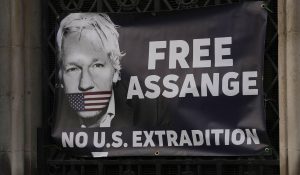
Staff Writer
WikiLeaks’s founder, Julian Assange, on Monday won an appeal to request the UK’s Supreme Court to adjudicate his case. Assange was appealing a December High Court decision to extradite him to the US on espionage charges. He has argued that the conditions of his imprisonment meant that he should not be extradited to the US, while prosecutors argued that they have received assurances that his prison stay would not include solitary confinement.
The Supreme Court would still need to decide to hear the case, which could take several months. Further, Assange could still appeal to the EU’s Court for Human Rights.
Speaking to Radio Islam International, Simon Crowther, a legal advisor to Amnesty International, welcomed the decision, arguing that the assurances provided were questionable. This was especially since torture has been proven to have been systemically used by the US, and because Amnesty believed that continued solitary confinement could also be seen as a form of torture.
Crowther reiterated that Mr Assange had a few cards to play, even were the Supreme Court to decide not to hear his case: “even at the end of this Supreme court case, even if he weren’t successful in the UK, there’s still a number of other pills that are upending in his case, that he would be able to take out of his back pocket.” He cited the Freedom of Expression argument, which may be appealed to at the European Court for Human Rights; it would set a very dangerous precedent for journalists, were Assange convicted, especially since much of the information required for exposing corruption and human rights abuses have generally been deemed as classified.
For the time being the extradition has been placed on hold, with Crowther arguing that it would take at least a few months for an initial decision to be reached, which could be further appealed.







0 Comments